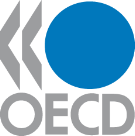Sweden and Netherlands ask OECD to study unfair biofuel subsidies
 At a time when the EU threatens with a trade war over US biodiesel export subsidies, Dutch Secretary of Economic Affairs Frank Heemskerk and his Swedish counterpart have announced [*Dutch] they want the Organisation for Economic Co-operation and Development (OECD) to study unfair subsidies for biofuels and their economic effects.
At a time when the EU threatens with a trade war over US biodiesel export subsidies, Dutch Secretary of Economic Affairs Frank Heemskerk and his Swedish counterpart have announced [*Dutch] they want the Organisation for Economic Co-operation and Development (OECD) to study unfair subsidies for biofuels and their economic effects.Heemskerk filed the reques last tuesday at an OECD meeting in Paris. According to the Secretary, biofuels will be playing an important role in the future as substitutes for oil and gas. But policies to promote biofuels should not imply unfair subsidies, because they distort markets and can have perverse effects on food prices in certain countries.
The OECD, an organization that provides a setting where governments can compare policy experiences, seek answers to common problems, identify good practice and co-ordinate domestic and international policies in a globalised economy has a broad mandate as it covers all economic, environmental and social issues of the developed countries. Since the OECD has a tradition of studying this broad range of socio-economic phenomena, is the appropriate forum for an objective analysis of the issue biofuel subsidies, Heemskerk thinks.
As the Global Subsidies Initiative recently reported, both the EU and especially the US subsidize their own biofuel sector with billions of dollars each year. In 2006 U.S. taxpayers spent at least US$5.1 billion on subsidizing ethanol producers, whereas another US$400 million to US$500 million went to biodiesel subsidies (earlier post). In the EU, farmers receive a €45 subsidy per hectare of energy crops.
Recently, the US launched its so-called "B99" subsidy, which allows US exporters to undercut European rivals by at least a quarter, forcing many to cut production and sell at a loss. The US "B99" subsidy is controversial because it benefits exporters. In most of Europe, tax breaks are available only at the point of sale. Commodity traders are also exploiting a loophole in the subsidy system that is making its impact even more damaging. The perfectly legal trick - coined "splash and dash" by the industry - also makes a mockery of the purpose of biofuels, which is to reduce the use of fossil fuels and thereby cut carbon emissions. Traders are buying biodiesel on the European market in Rotterdam and shipping it to the US. There, conventional gasoline is added to the biodiesel blend - or "splashed with gas" - to qualify for the subsidy. Then the cargo is shipped back - or "dashes" - to Europe and resold at a lower price.
Heemskerk points out that biofuel subsidies in general and export subsidies in particular have perverse effects on viability of the production of biofuels that are genuinely competitive as well as on the global food system, as prices may go up in importing countries, whereas in others food production may decrease:
 bioenergy :: biofuels :: energy :: sustainability :: ethanol :: biodiesel :: subsidies :: EU :: US :: OECD ::
bioenergy :: biofuels :: energy :: sustainability :: ethanol :: biodiesel :: subsidies :: EU :: US :: OECD :: The environment too may be affected when subsidies support one particular sector, like corn in the US, which limits biodiversity and promotes monocultures. Moreover, many developing countries would be able to produce competitive biofuels if the EU and the US were to reduce their subsidies (and remove their import barriers).
Both the Netherlands and Sweden are well placed to file a request for a study of biofuel subsidies. Sweden is Europe's biofuel leader and imports about 75% of its ethanol from Brazil, but it is investing massively in a domestic biofuel industry. The Netherlands for its part have a limited biofuel potential, and so are forced to import green fuels. For this reason, the country has a broad view on the global market. Recently, a Dutch commission drafted biofuels sustainability criteria, which must ensure that biofuel imports do not threaten the environment and social cohesion in the countries where they are produced.
More information:
De Financiële Telegraaf: OESO-onderzoek naar subsidie biobrandstoffen - May 15, 2007.
The Independent: Europe threatens trade war over US biodiesel subsidies - April 29, 2007.
Biopact: Subsidies for uncompetitive U.S. biofuels cost taxpayers billions - report, October 26, 2006
 --------------
--------------
 Malaysia's Plantation Industries and Commodities Minister Datuk Peter Chin Fah Kui announces he will head a delegation to the EU in June, "to counter European anti-palm oil activists on their own home ground". The South East Asian palm oil industry is seen by many European civil society organisations and policy makers as unsustainable and responsible for heavy deforestation.
Malaysia's Plantation Industries and Commodities Minister Datuk Peter Chin Fah Kui announces he will head a delegation to the EU in June, "to counter European anti-palm oil activists on their own home ground". The South East Asian palm oil industry is seen by many European civil society organisations and policy makers as unsustainable and responsible for heavy deforestation.








0 Comments:
Post a Comment
Links to this post:
Create a Link
<< Home